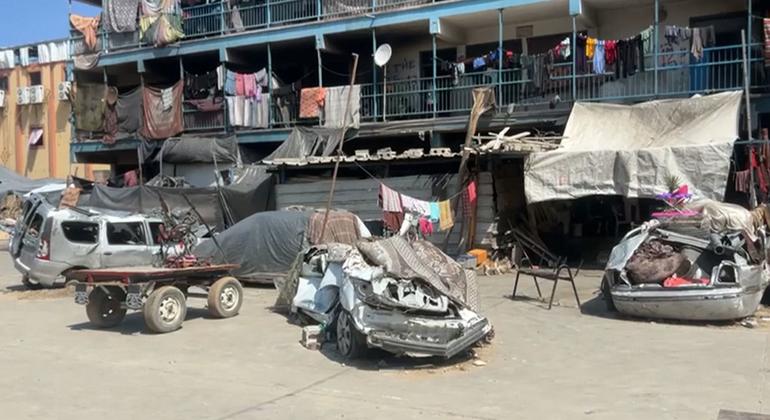The situation in Gaza City, particularly in the besieged areas such as Jabalia, is dire. Louise Wateridge, speaking from an UNRWA school in Gaza City, described the horrific conditions faced by families who have fled their homes in search of safety. She recounted stories of death, destruction, and desperation among the people she spoke to, highlighting the ongoing violence and lack of access to basic necessities like food and water.
For nearly 50 days, UN humanitarian missions have been trying to deliver supplies to northern Gaza, but access to those in need has been severely limited. The people who have managed to reach UNRWA schools seeking shelter have not found the safety they were looking for, as airstrikes have targeted these makeshift shelters, resulting in the deaths of many innocent civilians.
The city of Gaza lies in ruins, with every building damaged or destroyed as far as the eye can see. The once bustling streets are now filled with rubble, leaving around 300,000 people homeless and vulnerable. With winter approaching, the need for shelter, blankets, and other basic necessities is urgent. The lack of proper protection from the elements puts the lives of thousands at risk.
The ongoing conflict has taken a toll on humanitarian workers as well, with many being injured or killed in the line of duty. Despite the dangers they face every day, these brave individuals continue to risk their lives to provide aid to those in need. The loss of colleagues and friends in the war has created a sense of fear and uncertainty among the humanitarian community in Gaza, with the constant threat of violence looming overhead.
Access to essential services like water and healthcare has been severely disrupted, with water wells destroyed and hospitals repeatedly targeted. The lack of medication in UNRWA health clinics further compounds the health crisis in the region, leaving thousands without access to proper medical care. The destruction of infrastructure and essential services has made it increasingly difficult for aid to reach those who need it most, further exacerbating the humanitarian crisis in Gaza.
Despite the challenges and dangers they face, humanitarian workers like Louise Wateridge and her team continue to persevere, risking their own lives to help others. Their dedication and resilience in the face of adversity serve as a beacon of hope in the midst of destruction and despair. The international community must come together to support these brave individuals and provide the necessary resources to alleviate the suffering of the people of Gaza. Only through collective action and solidarity can we hope to bring peace and stability to this war-torn region.









